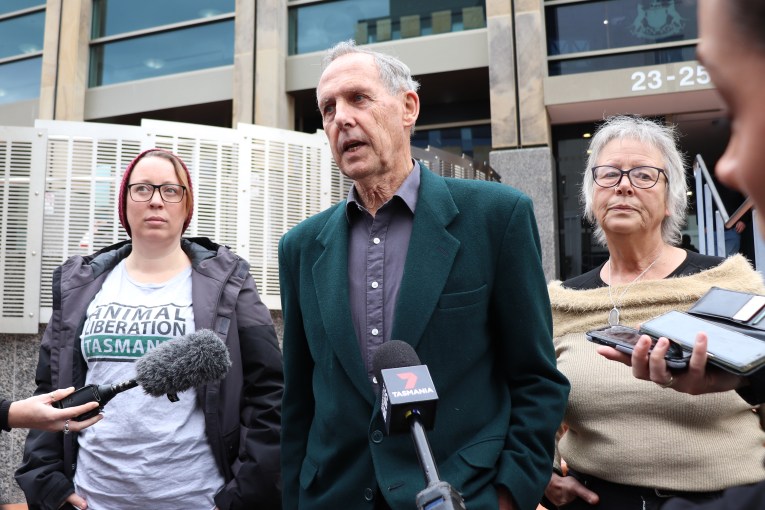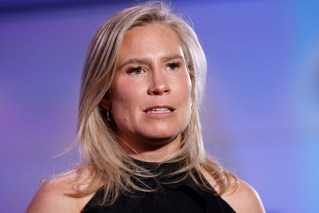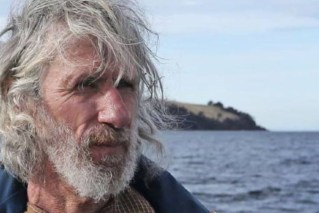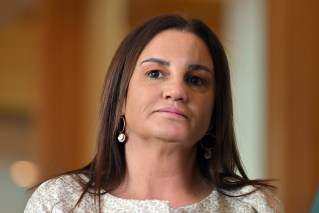Growers fear for future under Tasmanian fruit fly assistance changes
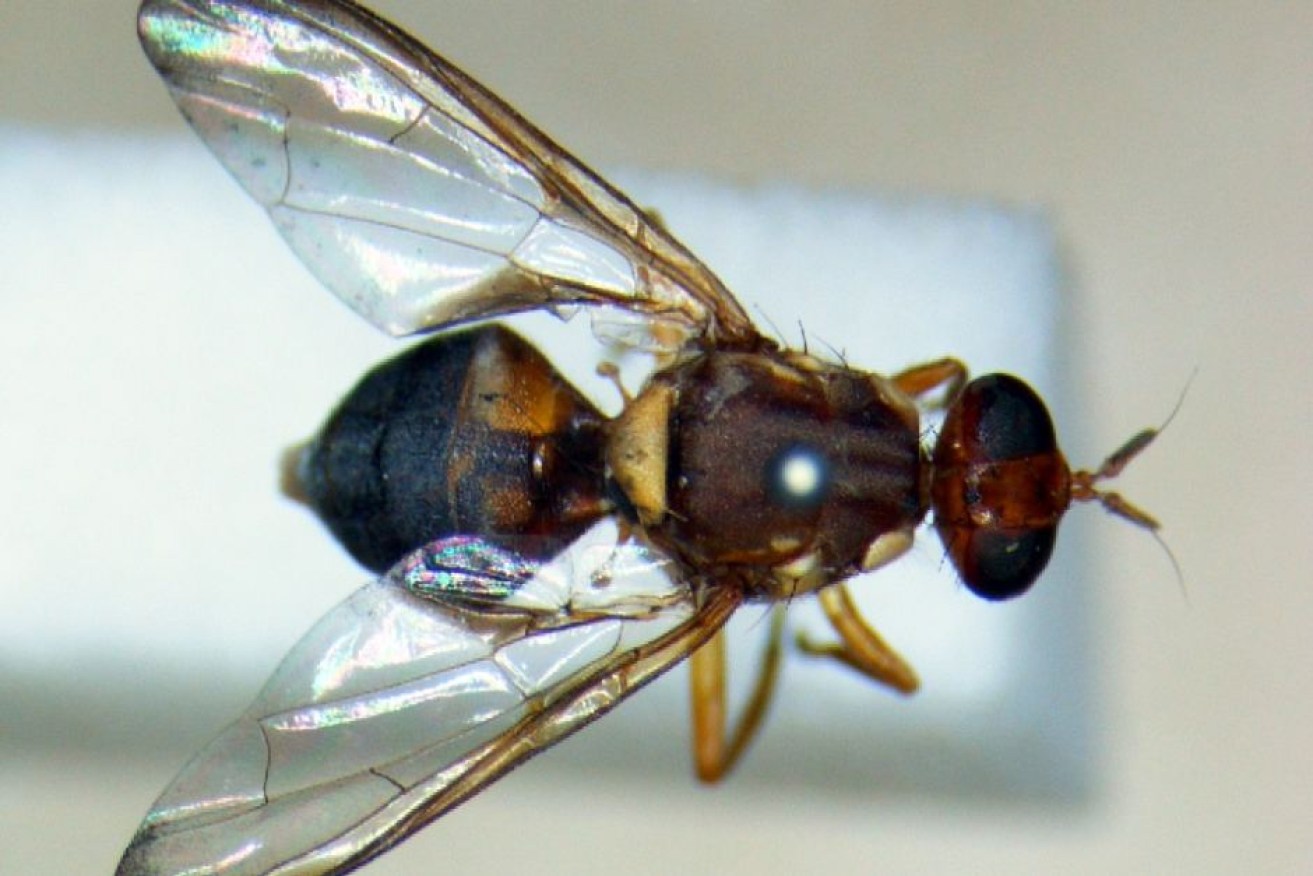
Fruit fly discoveries resulted in a number of exclusion zones. Photo: Biosecurity Tasmania
Tasmanian fruit growers in the north west affected by fruit fly fear they may have to close their businesses under changes to the fruit fly assistance package.
Under the changes, which the state government has confirmed will come into effect on September 28, farmers will not be compensated for undersold fruit in the market or the disposal of fruit.
The original compensation scheme was rolled out after the pest was discovered in the state’s north-west and in the Furneaux Island group earlier this year, sparking what growers have called one of biggest crises to affect growers in the region in more than a decade.
The changes were first floated by Fruit Growers of Tasmania president Nic Hansen last week.

Labor’s Shane Broad with fruit growers at Turners Beach. Photo: ABC News
At the time, Mr Hansen said the changes would have a big impact on growers.
“When the government set this package up those points were very critical, as it employs people to continue to do their job,” he said.
“It’s probably a cost-control measure.”

Fruit fly larvae in fruit flesh. Photo: Biosecurity Tasmania
Shadow Primary Industries Minister Shane Broad said businesses in the state’s north-west could collapse.
“The original package was designed so that no farmer would be worse off. So if you had to fumigate your product and sell it at a lower value, or you had to dump product, you would be compensated,” he said.
“What we are hearing now is that you will get assistance to fumigate but any losses that you make, you won’t be compensated for.
“This could run into hundreds of thousands of dollars, which could force the closure of some businesses, and the loss of hundreds of jobs.”
Mr Broad said the government had mismanaged the fruit fly crisis.

A fruit fly trap set up in tree at a property in Spreyton, in north-west Tasmania. Photo: ABC News
But Craig Morris, who runs a strawberry-growing business at Turners Beach, was blunt about the potential change.
“Fumigated products we have found are very inferior. It is not something our business wants to be associated with,” he said.
“Going down that path would be devastating.
“It means basically we are destroying a big part of our business, which is our wholesale business.”
https://twitter.com/HarvestFeast/status/1033961763861975040
North West fruit growers affected by the fruit fly outbreak are concerned about the government’s changes to the fruit fly assistance package. @TasmanianLabor claim changes to the assistance package may force growers to shut down. @WINNews_Tas pic.twitter.com/oHwyO3vjiE
— Elanor Louise (@e_watt93) September 4, 2018
Anthony Brandesma, whose family have run a tomato and eggplant business for six decades, said fruit fly was the worst crisis he had seen in more than 10 years.
“Nobody prepares you for the fact that the government comes in, and tells you to stop what you’re doing because it’s all wrong, and then change to a different model,” he said, referring to the assistance package.
“I think the government is worried that if fruit fly hasn’t been eradicated by January then they can’t keep putting their hand in their pocket to help out with an assistance package.
“I was due to start planting eggplants in the greenhouse and start picking from this plant in around six weeks, but now I’m going to be tossing out my eggplant because it does not survive fumigation well at all.
“I’ll have to dump the fruit, which I won’t get compensation for.”
Government admits changes
A government spokesperson confirmed to the ABC “the government will not compensate for the undersold fruit or the dumped fruit after September 28, but it will continue to talk to farmers, growers and listen to their feedback”.
In a statement, Minister for Primary Industries Sarah Courtney did not directly address the proposed changes.
“The government will continue to provide transitional assistance to affected growers in the control zones as we move towards reinstatement of Tasmania’s Pest Free Area (PFA) status including funding for packaging, fumigation treatment and associated transport and labour costs,” she said.
–ABC
